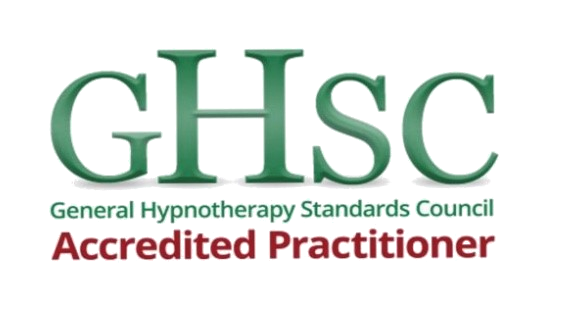CBT Treatment for Perinatal Depression - in London, Across the UK and Online Via Video-link
We provide fast and effective CBT treatment for perinatal depression (also known as prenatal and postnatal depression) from our clinics across the UK and online via video-link. Cognitive Behavioural Therapy is the recommended treatment of choice for perinatal depression and the published evidence shows that it is more effective than other forms of therapy or medication. To talk to a CBT expert about treatment for your prenatal or postnatal depression symptoms, call 01732 808626 or email info@thinkcbt.com
What is Perinatal Depression?
From the beginning of pregnancy through the first full year following the birth of a child. Women are at an increased risk of developing perinatal depression and other psychological health problems including OCD and psychosis during this period.
Normal Emotional Changes
Around 80% of women experience the turbulence of anxiety and low mood during pregnancy and after giving birth. this reflects normal hormonal changes, symptoms of reduced or disrupted sleep and the stress of adjusting to the demands of a new baby. It’s normal to feel excited and fulfilled in one moment, whilst feeling tearful and exhausted the next. These changes can be triggered by a sharp increase in oestrogen and progesterone during pregnancy and for some women, a reduction in thyroxine levels. These transient feelings change within a few weeks after giving birth as the period of adjustment continues and as hormonal levels normalise following the birth of the baby.
How is Perinatal Depression Different?
Perimital Depression is longer lasting and can have significant effects on the mother’s health, her relationship with the baby, family conflict and the baby's early development. Many women experience problems caring for their baby , their own health and often experience thoughts of harming themselves or their child. Where these distressing thoughts, feelings and patterns of withdrawal persists for a period of more than two weeks, this can be an indication of perinatal depression.
This type of depression is surprisingly common, affecting approximately 16% of women during pregnancy and following the birth of the child.
Symptoms of Perinatal Depression include:
- Persistent sadness and depressed mood.
- Feelings of emptiness and hopelessness.
- Emotional fragility and frequent crying.
- Difficulty concentrating and making decisions.
- Broken sleep and insomnia.
- Fatigue and feeling weak.
- Irritability and short temper.
- Loss of interest in caring for self or the baby.
- Loss of interest in activities previously enjoyed.
- Changes in appetite and weight.
- Thoughts of death, self-harm or harming the baby.
Where these symptoms persist, it’s important that the mother talks to a GP, community nurse or a qualified psychological health professional. Perinatal depression may also be linked to other common psychological health problems including OCD and perinatal psychosis. These problems can lead to highly distressing intrusive thoughts and in some cases delusional behaviour. Perinatal depression, OCD and perinatal psychosis are sometimes linked to past psychological health problems, however other environmental factors including poor support, health problems and isolation can also play a significant part in the development of perinatal depression.
Recommended Tests for Perinatal Depression and Anxiety
The following psychological tests can provide helpful information for women struggling before or after the birth of the baby. This includes the use of the EPDS, which specifically relates to postnatal depression. You can show the results from these assessments to your GP or another psychological health professional:
Please note: Data generated from these tests is not stored or shared with any other party. We will never use personal data for research or marketing purposes and our data control processes comply with the General Data Protection Regulations (GDPR).
Whilst every effort is made to ensure that our system is securely encrypted, email is not a secure means of communication. Think CBT will therefore not accept liability for loss or theft of personal data where any individual chooses to transmit or receive information via email.
Always consult a qualified health professional such as your GP or local emergency services if you feel at risk or if you are concerned for your safety.
How is CBT Used to Treat Perinatal Depression?
Cognitive Behavioural therapy is the treatment of choice for perinatal depression. The CBT treatment process involves:
- Psychoeducation on the causes of distressing thoughts and feelings.
- Something called Behavioural Analysis to identify positive and negative reinforcement factors.
- Goal setting and work on personal values to provide purpose and reconnect with personal identity.
- Behavioural Activation to increase the impact of activities that lead to connection, motivation and enjoyment.
- Cognitive change and defusion techniques to change or alter the impact of negative thoughts.
The CBT process for perinatal depression can also be adapted to address negative intrusive thoughts and behaviours associated with perinatal OCD. For the very small number of women that develop perinatal psychosis, (approximately 0.2%), there is also a CBT protocol to treat the transitory delusional symptoms of psychosis.
How to Organise CBT for Perinatal Psychological Health Problems
You can access NHS support by contacting your GP or community mental health team.
For private Cognitive Behavioural Therapy, you can call Think CBT on 01732 808626 or by emailing info@thinkcbt.com to organise a brief informal call with one of our CBT specialists.
There are many counsellors and therapists offering CBT. Always ensure that your Cognitive Behavioural Psychotherapist is properly qualified and professionally accredited. At Think CBT, our Therapists are qualified and professionally accredited by the British Association of Behavioural and Cognitive Psychotherapies (BABCP). This is the recognised body for the professional practice of CBT in the UK.
















